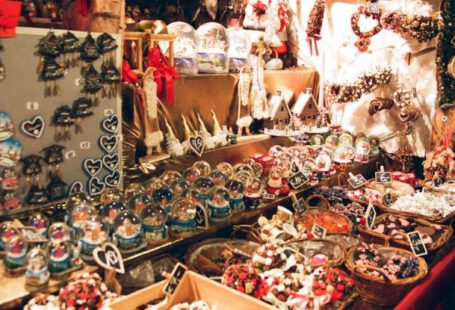Traditions are an integral part of human culture. They provide a sense of identity, connect generations, and give a sense of belonging. But have you ever wondered how traditions evolve over time? In this article, we will explore the various factors that influence the evolution of traditions.
The Influence of Social Changes
One of the primary factors that contribute to the evolution of traditions is social changes. As society progresses and evolves, so do its traditions. For example, in the past, arranged marriages were common in many cultures, but in today’s society, love marriages have become the norm. This shift in tradition reflects changing attitudes towards individual freedom and choice.
Globalization and Cultural Exchange
In our increasingly interconnected world, globalization and cultural exchange play a significant role in shaping traditions. As people from different cultures come into contact with one another, they bring with them their unique customs and practices. Over time, these customs may blend with existing traditions, leading to the formation of new ones. For instance, the popularity of Halloween, originally an Irish tradition, has spread to many parts of the world, adapting to local customs and becoming a unique celebration in each region.
Technological Advancements
Technological advancements have also had a profound impact on the evolution of traditions. The advent of the internet and social media has made it easier for people to connect and share ideas. This has led to the rapid dissemination of information and the exchange of cultural practices. Online platforms have become virtual meeting places where traditions can be shared, celebrated, and adapted. For example, the practice of “Friendsgiving,” where friends gather to celebrate Thanksgiving, has gained popularity through social media platforms.
Changing Values and Beliefs
As societal values and beliefs change, so do traditions. For instance, the growing awareness and acceptance of LGBTQ+ rights have led to the evolution of traditions surrounding marriage. Many countries now recognize same-sex marriage as a legal and cultural norm, challenging traditional notions of marriage. This shift reflects a broader acceptance of diversity and inclusivity within society.
Generational Influences
Traditions are often passed down from one generation to the next, but each new generation brings its unique perspectives and experiences. As younger generations come of age, they may choose to reinterpret or modify existing traditions to align with their values and lifestyles. This generational influence can lead to the evolution of traditions and the creation of new ones. For example, the rise of eco-consciousness has led to the popularity of sustainable holiday practices, such as using recycled materials for decorations.
The Role of Individual Agency
Individual agency also plays a significant role in the evolution of traditions. As people become more empowered to express their individuality, they may choose to break away from traditional practices and create their own unique traditions. These individualistic traditions may be influenced by personal beliefs, interests, or experiences. For instance, some families may choose to celebrate alternative holidays or create their own rituals that reflect their values and aspirations.
In conclusion, traditions are not static but rather dynamic and ever-evolving. They are influenced by social changes, globalization, technological advancements, changing values and beliefs, generational influences, and individual agency. As society continues to progress, it is essential to embrace and respect the evolving nature of traditions while cherishing the connections they provide across generations.





